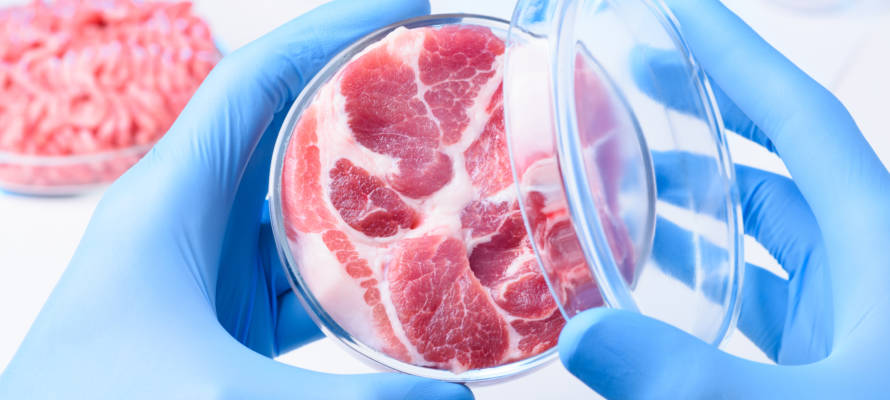“The OU is pleased to provide certification to a product that meets kosher standards, while also leading innovation in food technology,” says CEO of OU Kosher.
By Menachem Wecker, TPS
The latest of more than 1.3 million products that the US-based Orthodox Union certifies as kosher is lab-grown “chicken,” which is produced by the Tel Aviv-based startup, SuperMeat. It is the first lab-grown “meat” product that the nonprofit kosher agency is certifying.
“The OU is pleased to provide certification to a product that meets kosher standards, while also leading innovation in food technology,” stated Rabbi Menachem Genack, CEO of OU Kosher, in a press release.
Lab-grown chicken is grown from fertilized chicken egg stem cells, and as such, doesn’t come from a live animal, which would be prohibited under Jewish law.
“The product is currently the product of a laboratory. Ultimately, in order to produce the product at an industrial volume, the company plans to perform a process in which the cells are propagated in industrial sized bioreactors,” Genack told the Tazpit Press Service.
Given that the cells are taken during a “narrow zone of time” between when the egg is laid and blood spots—which would render the egg non-kosher—would appear, there is no concern about such spots, according to Genack.
The kashrut executive also told TPS that ritual slaughter, shechita, is not required for the lab-grown “chicken,” and although there might be issues of forbidden mixtures in other areas, “there is no such problem in this case.”
“Essentially, what happens is that the cells—initially a minimal amount—are introduced into an environment in which the cells divide. One becomes two, two become four and so on,” Genack said. “The environment that the original cells are delivered into is composed entirely of kosher ingredients.”
The lab-grown chicken will be considered meat, he said.
The environment is designed to provide energy to the cells and to stimulate their growth, and chemicals that mimic natural systems instruct the cells.
“Through this process of cell division, the original miniscule sample obtained from the newly-laid egg becomes more substantive,” Genack explained. “Through additional technical processes, that substance can adopt a specific form and even assume the identity of specific types of cells, like a muscle cell.”
“In this way, one can produce something that resembles a chicken nugget, for example.”
In a statement posted on LinkedIn, SuperMeat CEO Ido Savir said, “Aligning our technology with kosher dietary laws is pivotal. This is not just about adhering to regulations but our commitment to catering to diverse dietary needs, ensuring our cultivated chicken reaches all audiences around the globe.”
He added that SuperMeat and the OU would make comprehensive review of the entire supply chain and production process to help “set definitive guidelines for other cultivated meat companies looking for Kosher certification.”
Cultured meat also received its first stamp of Muslim approval this week. The California-based GOOD Meat announced on Monday that a group of Islamic scholars in Saudi Arabia ruled that lab-grown meat can also be considered halal if production meets certain criteria.
